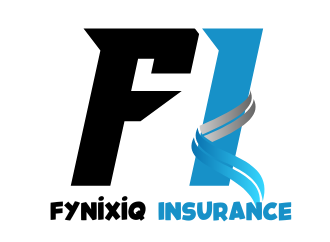
Car insurance is a crucial financial tool that protects vehicle owners from financial losses due to accidents, theft, natural disasters, and other unforeseen circumstances. Having the right car insurance policy ensures that you are financially secure and compliant with legal requirements. With multiple coverage options available, it is essential to understand different policies, their benefits, and how to choose the best plan that suits your needs. This guide provides in-depth information on car insurance, including its importance, types, factors to consider, and frequently asked questions to help you make an informed decision.
What is Car Insurance?
Car insurance is a policy that provides financial protection against damages to your vehicle and liabilities arising from accidents. It covers repair costs, medical expenses, and legal liabilities, depending on the type of policy you choose.
Importance of Car Insurance
- Legal Requirement: In most countries, car insurance is mandatory to drive legally on public roads.
- Financial Protection: Covers repair and replacement costs in case of accidents, theft, or natural disasters.
- Third-Party Liability Coverage: Protects you from legal and financial liabilities in case of damage or injury to a third party.
- Medical Expense Coverage: Pays for medical bills resulting from accidents involving the insured vehicle.
- Peace of Mind: Reduces financial stress and ensures you are covered in case of unexpected incidents.
- Coverage for Natural Disasters: Provides financial assistance for damages caused by floods, earthquakes, storms, and other natural calamities.
- Protection Against Theft and Vandalism: Compensates for loss due to vehicle theft or damages caused by vandalism.
- Compensation for Personal Injury: Helps cover expenses related to injuries sustained by the driver or passengers.
- Roadside Assistance: Some policies include services such as towing, battery jump-starts, and emergency fuel delivery.
- Resale Value Protection: Ensures financial stability by covering depreciation costs in case of an accident.
Types of Car Insurance Policies
1. Third-Party Liability Insurance
This is the most basic and legally required form of car insurance. It covers damages or injuries caused to a third party, including their vehicle and medical expenses, but does not cover damages to your own car.
2. Comprehensive Car Insurance
Auto Insurance: A Complete Guide to Safeguarding Your Car. It includes protection against theft, natural disasters, fire, and vandalism.
3. Collision Insurance
This policy covers the repair or replacement costs of your car in case of an accident, regardless of who was at fault.
4. Personal Injury Protection (PIP)
PIP, sometimes referred to as “no-fault insurance,” pays for your passengers’ and your own medical bills in the event of an accident, regardless of who is at blame.
5. Uninsured/Underinsured Motorist Coverage
Provides financial protection if you are involved in an accident with a driver who does not have adequate insurance.
6. Pay-As-You-Drive (Usage-Based Insurance)
Premiums are based on driving behavior and mileage, making it a cost-effective option for low-mileage drivers.
7. Zero Depreciation Insurance
Ensures full claim settlement without considering depreciation, making it ideal for new car owners.
8. Rental Reimbursement Coverage
Pays for rental car expenses while your vehicle is being repaired after an accident.
9. Gap Insurance
Covers the difference between the car’s actual value and the amount you owe on a car loan.
10. Emergency Assistance Insurance
Offers 24/7 roadside support, covering towing, mechanical repairs, and alternative transport arrangements.
FAQs
1. What distinguishes comprehensive auto insurance from third-party auto insurance?
Third-party insurance covers damages to others but not your own car, while comprehensive insurance includes both third-party and personal vehicle damages.
2. How can I reduce my car insurance premium?
You can lower premiums by maintaining a clean driving record, choosing higher deductibles, availing no-claim bonuses, installing anti-theft devices, and bundling insurance policies.
3. Is car insurance mandatory?
Yes, most countries require at least third-party insurance to legally operate a vehicle. Driving without insurance can result in heavy fines and legal consequences.
4. What should I do in case of an accident?
Immediately inform your insurer, document the damage with photos, file a police report (if required), exchange information with the other party, and submit a claim with your insurance provider.
5. Can I transfer my car insurance when selling my vehicle?
Yes, car insurance can be transferred to the new owner with the insurer’s approval. The new owner must notify the insurer and update the policy details.
6. What does a zero depreciation policy cover?
It covers the full claim amount without considering depreciation, ensuring higher payouts for repairs and replacements.
7. How long does it take to settle a car insurance claim?
The claim settlement time varies but typically takes from a few days to a couple of weeks, depending on documentation and policy terms.
Conclusion
Car insurance is an essential safeguard that protects vehicle owners from financial losses arising from accidents, theft, natural disasters, and liabilities. Choosing the right policy involves assessing coverage needs, comparing insurers, and understanding policy terms. With the right car insurance, you can drive with confidence, knowing you are financially protected against unforeseen events. Investing in a suitable car insurance policy ensures peace of mind and financial stability in times of need. Always stay informed and keep your policy up to date to enjoy uninterrupted protection for your vehicle.
